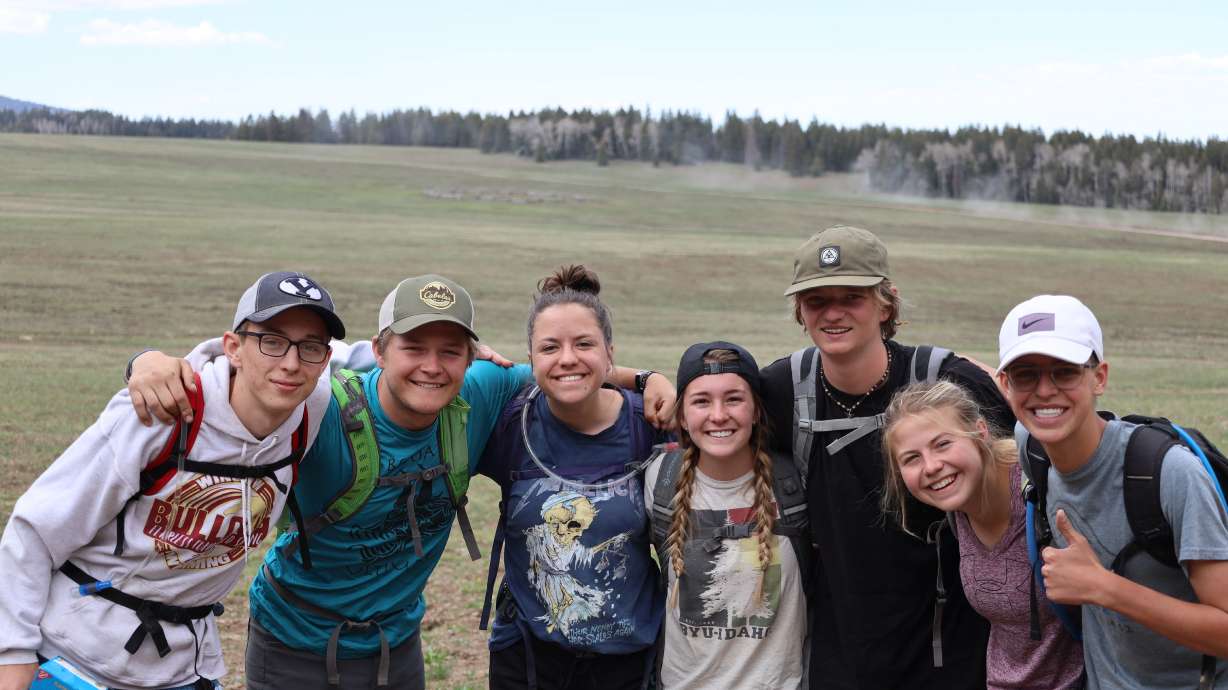Estimated read time: 4-5 minutes
This archived news story is available only for your personal, non-commercial use. Information in the story may be outdated or superseded by additional information. Reading or replaying the story in its archived form does not constitute a republication of the story.
SALT LAKE CITY — Glen Andersen has worked with teenagers for years — at summer camps, in group homes and as a seminary teacher for The Church of Jesus Christ of Latter-day Saints. About seven years ago, he realized something was off.
"I just started to see that kids were changing … it was just a bit harder to connect with them and reach them," he said.
In his seminary classes, he noticed teens weren't as engaged with his lessons, the course content or even with each other. He started doing some digging, reading about the effects of social media and the staggering number of hours kids were spending on smartphones.
Spending three or more hours on social media a day doubles a teen's risk of depression — the average teen spends almost five. Between social media time and other screen time, teens spend about half of their waking hours on their phones, the New York Times reports.
Andersen wants to help kids take back their childhoods: "More talking face to face, more night games, more hanging out, jumping in ponds, toilet papering their neighbor's house — normal kid stuff."
His brand-new nonprofit, Rewild The Child, hopes to do just that. The organization invites teens ages 12-18 to "join a revolution," committing to live without a smartphone for an entire year.
If teens sign on to the challenge, they'll get a free Gabb Phone 4 and discounts from local businesses, including $75 off of a GetOut pass.
The Gabb Phone 4 is a perfect fit for teens who take up the challenge, said Lori Kun, a Gabb spokeswoman. The phone has basic features like calling, texting, GPS, photos, notes and music. It doesn't have social media or an internet browser.
In Andersen's view, social media platforms are the real time suckers. The most popular apps have tools like "streaks," auto-play videos, push notifications and a bottomless feed, that keep teens scrolling and checking back in all day. One Commonsense Media study found that teens got a median of 237 notifications each day.
"The people that are designing social media are designing it in a way that traps teenagers," Andersen said. "Some kids are more susceptible than others."
Andersen acknowledges that some kids might do well just keeping their phones out of their rooms at night, or setting daily screen time limits. For others, a long-term detox might be in order.
Many teens feel the negative effects of social media but don't know how to step back. Lauren Fellars, who committed to the Rewild The Child challenge, said she felt "gross and tired" whenever she scrolled for more than an hour.
"I want to put it (my phone) down for a year because I know it will make me spend my time doing things that are productive," Fellars said. "Almost all of my favorite memories are ones that I've made while outside. Not one is from looking at a screen."
Haidyn Hudson said since getting phones, she and her friends have struggled with mental health issues. Part of that is just a byproduct of growing up, but she says smartphones make things "so much worse."
"I want to do this for a year to challenge myself," she said. "I want to show myself I can do something hard. I am so excited to see what my life can become without most of it tied to a screen."
Andersen sees kids who have grown up with cellphones struggling to self-regulate, and the challenge aims to give kids a reset. "They've had cellphones their whole life, and they feel sad and they don't know why … they think it's just life."
The key, Andersen and Kun say, is to replace screen time with something better. Kun sees some parents make the mistake of overprotecting their kids from the outside world while not protecting them enough from the digital one. "The outside world is not as scary as we sometimes make it out to be," she said.
She's been reassured as she's seen kids in her neighborhood spend more time outside, riding bikes and playing together. "I think there's a shift happening," she said.
And what will happen when this pilot group finishes the year without a smartphone? Hard to say, but Kun has some guesses.
"We anticipate there will be some great — I would say transformative — experiences along the way," she said.
And whether or not teens decide to stick with their Gabb device once the year is over will be up to them. "But we would advocate for the least distracting device they can have," Kun said.
Andersen is available to speak to schools or other groups about Rewild The Child this year. If local businesses want to offer discounts or admission to participating teens, they can submit an application online.









